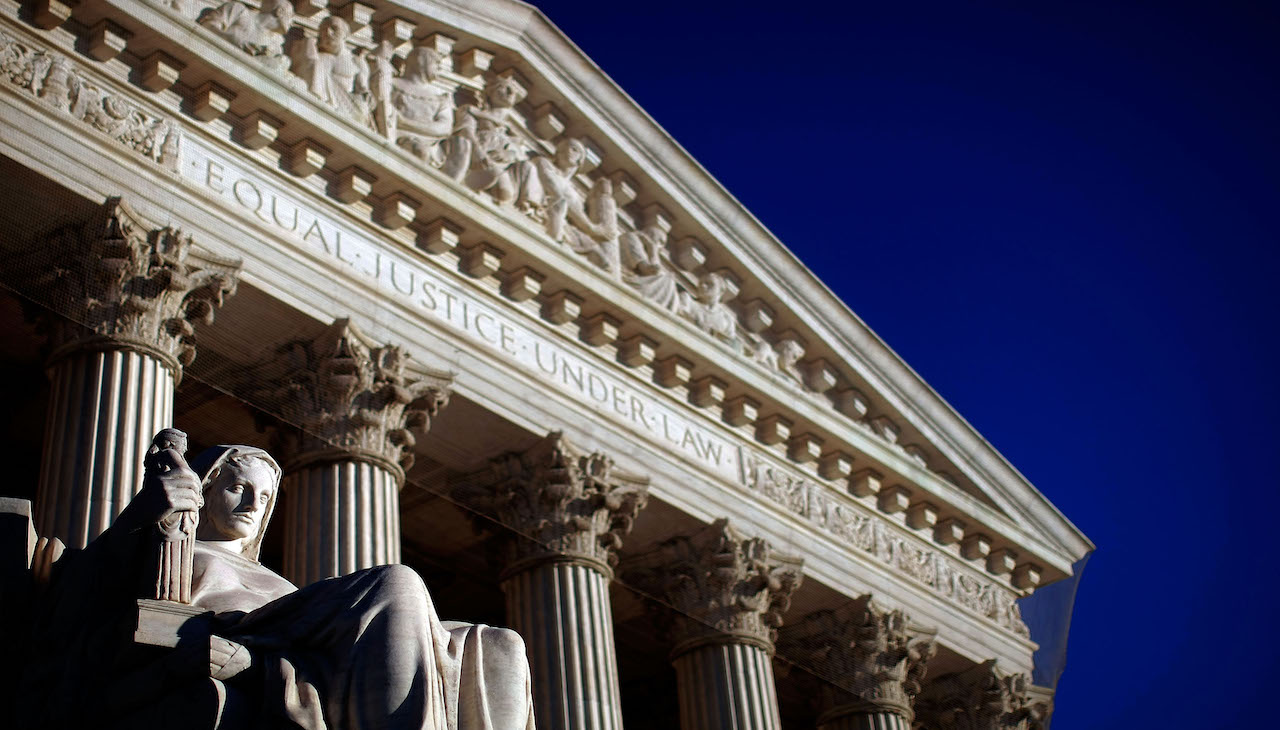
Federal Appeals Court rules in favor of trans protections under the American Disabilities Act
The decision comes at the heel of a 2020 lawsuit by Kesha Williams, a woman who experienced abuse in prison by male deputies.
This week, the Fourth District Court ruled in favor of protections provided by the Americans with Disabilities Act (ADA) for Kesha Williams, a formerly incarcerated transgender woman who experienced forceful physical treatment at the hands of authorities during her time in a Fairfax, Virginia jail.
Williams, 41, was initially placed in a women’s facility in 2018 after she admitted to aiding a drug-dealing boyfriend. The Fairfax County Sheriff’s Office later transferred her to a male inmate facility following a medical evaluation by a jail nurse when she disclosed her trans identity.
At the male facility, Williams, who had undergone years of hormone therapy treatment and lived her life as a transgender woman, was regularly addressed as “sir” and “mister.”
The opinion highlights several disturbing instances where she was denied the intervention of a female deputy during physical searches, despite one being readily available.
“Sir, you are a male and I need to search you,” a deputy officer told Williams, according to court documents.
In 2020, Williams sued.
A lower court previously ruled that ADA did not protect trans folks who experience gender identity disorder, which, according to the Appeals court, is a different diagnosis and not applicable to the entirety of the US trans population.
The three-judge panel decision in Richmond directly reverses the lower court’s assessment of William’s gender dysphoria, which disqualified her from ADA protections.
They stated that the Sheriff’s office relied on ADA exclusions to issue their arguments. Some of the exclusions include “ “transvestism, transsexualism, pedophilia, exhibitionism, voyeurism, gender identity disorders not resulting from physical impairments, [and] other sexual behavior disorders.”
When the ADA adopted these exclusions, gender dysphoria was not incorporated under the gender identity disorder under its definition. In fact, it did not exist as a diagnosis.
Thus, the American Psychiatric Association classified being transgender as a mental illness. Clinical advances have done away with the outdated notion, prompting the removal of “gender identity disorder” from the most current medical vocabulary and incorporating gender dysphoria.
RELATED CONTENT
If left untreated, gender dysphoria causes disabling symptoms. The court’s opinion also added legal precedent: "gender dysphoria can cause, among other things, depression, substance use, self-mutilation, other self-harm, and suicide.”
Given the APA’s removal of gender identity disorder and modern clinical research, Williams’ case became a slam dunk.
“This is a thorough, well-reasoned opinion recognizing that the Americans with Disabilities Act prohibits discrimination against individuals with gender dysphoria,” said NCLR’s Legal Director Shannon Minter.
“This decision sets a powerful precedent that will be important for other courts considering this critical issue,” she continued.
The Washington Post reported that Williams had been in touch with her lawyer six months before her time in jail was up. She expressed concern for other transgender folks in the prison system.
Under the current court system, the transgender population faces significant barriers in achieving justice, given obsolete approaches to medical literature across the nation.
“There is no principled reason to exclude transgender people from our federal civil rights laws,” said Jennifer Levi, GLAD Transgender Rights Project Director. “It’s incredibly significant for a federal appeals court to affirm that the protections in our federal disability rights laws extend to transgender people.”
The opinion was written by Judge Diana Gribbon Motz and co-authored by Judge Pamela Harris. Both judges are Obama appointees. Judge A. Marvin Quattlebaum wrote the dissenting opinion, siding with the Sheriff’s office.
He said there are “pros and cons to every possible approach.”











LEAVE A COMMENT:
Join the discussion! Leave a comment.